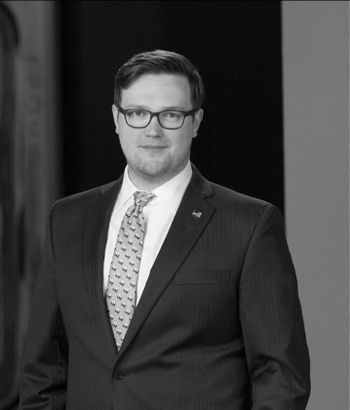GOULD: University is not a substitute for decline in community
It can't replace church, dating, marriage, or having children.
Anne Kenner, a former federal prosecutor, found herself at a turning point in her life after her troubled brother’s suicide. She joined Stanford University’s Distinguished Careers Institute, a program for adults transitioning out of their main careers. Despite being successful in their previous endeavors, David Brooks writes in his August 25 article in The Atlantic, that participants like Kenner faced a challenging shift in identity and purpose as they stepped into retirement.
These programs, according to Brooks, help participants answer profound questions about their life journey and desires, fostering personal growth and self-discovery. They challenge participants to go beyond their career-focused identities and to consider their intrinsic desires and contributions to society.
Navigating this juncture in life is often turbulent, as Brooks notes, with individuals grappling with the profound loss of their career-bound identities.
Against this backdrop, Brooks contends that these programs play a pivotal role in helping individuals redefine their lives beyond the confines of professional accomplishments, transcending the modern phenomenon known as “workism”—the belief that one’s career and achievements serve as the ultimate sources of meaning and purpose.
Brooks identifies a crucial factor contributing to the identity crisis: the decline of traditional social connections found in communities, such as churches:
In the old days, the Elks Club or the Ladies Auxiliary or the VFW hall or your worship community might have helped, but they’ve receded in recent decades, as has been well documented.
[RELATED: Christ is transgender, dean claims]
Funny, however, is that while Brooks acknowledges the void left by the decline of communal ties such as that found in church attendance or starting a family, he doesn’t advocate for a return to those institutions as the solution for retirees to find purpose.
He overlooks how the pursuit of academic degrees and an overemphasis on earning a degree have delayed significant life milestones that even he himself would describe as more meaningful – forming relationships, marriage, parenthood, and participating in local worship centers.
“25-year-olds today still trail those of 1980 on milestones that relate more to family than finances,” Pew Research notes. “In 2021, about two-thirds of 25-year-olds (68%) were living outside their parents’ home, compared with 84% in 1980. And only 22% of people this age were married in 2021, compared with 63% in 1980. The same pattern holds when it comes to having children: Just 17% of 25-year-olds in 2021 had a child, compared with 39% in 1980.”
Hannah Fray, in her August 3rd Los Angeles Times article titled, “A ‘failure to launch’: Why young people are having less sex,” shares the perspective of University of California Irvine graduate, Ivanna Zuniga, who says that “her peers have largely delayed” forging relationships to focus on education and career.
The national trend echoes Zuniga’s message, as fewer young men report fewer sexual partners, a trend caused by in part by demanding academic schedules.
Despite these trends, however, Brooks intriguingly embraces the paradox of Stanford’s transition program – that more education will fulfill a person.
Arguably, these programs inadvertently perpetuate the workism mindset, as enrolling in such programs may resemble trading one form of relentless ambition for another.
Just as workism encourages individuals to relentlessly pursue career milestones, these educational programs foster an obsessive checklist mentality—always seeking the next accomplishment and educational accolade.
[RELATED: Most Americans no longer think that college is worth the cost]
Brooks’s contention should not be to position universities as the modern-day Church, where everyone should go to find meaning, but rather to describe Stanford’s post-career program as just another manifestation of “workism.”
The very nature of the program is designed to make retirees work or to be “productive” as the brochure describes it. More ironically, retirees, having spent their lives working to earn money, will need to pay $65,000 to work in Stanford’s program.
Higher education is not a substitute for the decline of community - it can’t replace church, dating, marriage, or having children.
A more holistic approach necessitates reevaluating society’s fixation on incessant accomplishments. This involves motivating retirees to discover purpose by contributing to their communities through service – for free – and encouraging those currently in their careers to find meaning beyond their jobs.
At the bare minimum, the pursuit of self-discovery should not morph into the form of attaining another educational accolade.
Follow Jared Gould on X for more stories like this.
Editorials and op-eds reflect the opinion of the authors and not necessarily that of Campus Reform or the Leadership Institute.

